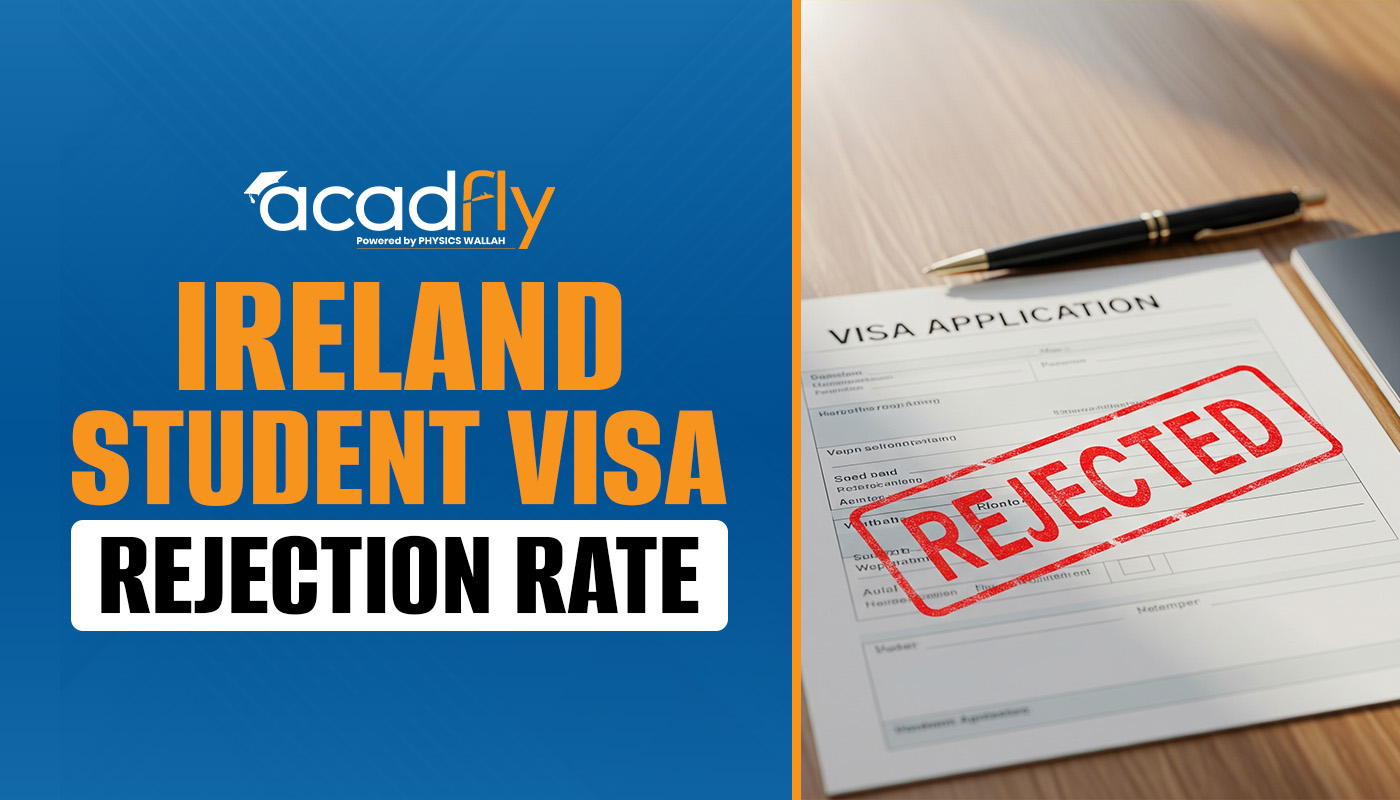
Conjoint programs allow you to study two undergraduate bachelor's degrees at the same time. If you are interested in more than one topic of study, a conjoint degree may be a good option for you. A conjoint degree is a combination of two undergraduate degrees that may be completed in a shorter duration of time (simultaneously), compared to pursuing them individually. We provide over 30 conjoint combinations, ranging from Commerce and Music to Science and Arts.
Conjoint Degrees in New Zealand
Conjoint Degrees in New Zealand provide more than the average undergraduate degree. If you can't decide between two undergraduate programs and want to study them both at the same time, New Zealand is the perfect place for you. It allows you to seek precisely that. A Conjoint Degree in New Zealand allows you to pursue two subjects of study at the same time and pace, and it takes less time than completing two undergraduate degrees. Let us have a better understanding of a Conjoint Degree in New Zealand.
Some fundamentals of a conjoint degree in New Zealand you should know:
-
A student pursuing a Conjoint degree in New Zealand will typically take one additional course each year. This requires less time than a full-time course because some electives are optional. This indicates that a joint degree in New Zealand requires less points per degree than a full-time double undergraduate degree.
-
An undergraduate degree includes eight classes per year. However, because a conjoint typically consists of nine courses per year, a BA/BSc conjoint would require a total of 36 courses. This implies that there are 17 courses on either side of the combined degree.
-
Even after adding one elective and a General Education Course to the conjoint degree, a double three-year bachelor's degree with 24 courses each is much more than a conjoint one.
-
Because a conjoint degree requires studying two courses concurrently, a major must be chosen on either side of the two courses. A student can also opt to pursue a double major on either side, however this is dependent on the methodologies used in the joint degree.
Conjoint Degrees in New Zealand - Universities
We learnt about some of the most popular conjoint degree combinations in New Zealand, but what institutions offer them? Here are the top ones:
|
New Zealand Universities |
QS Ranking 2023 |
|
The University of Auckland |
87 |
|
University of Waikato |
331 |
|
The University of Canterbury |
284 |
|
Massey University |
292 |
|
Victoria University of Wellington |
275 |
|
University of Otago |
217 |
|
Auckland University of Technology |
486 |
|
Lincoln University |
368 |
|
Manukau Institute of Technology |
– |
|
Southern Institute of Technology |
– |
Conjoint Degrees in New Zealand - Popular Courses
In New Zealand, not all course combinations are eligible for conjoint degrees. These are some of the most popular conjoint degrees in New Zealand, with a typical duration of 4-5 years.
-
Bachelor of Business with a Bachelor of Laws
-
Bachelor of Arts with a Bachelor of Laws
-
Bachelor of Teaching with a Bachelor of Arts
-
Bachelor of Social Sciences with a Bachelor of Laws
-
Bachelor of Teaching with a Bachelor of Social Sciences
-
Bachelor of Teaching with a Bachelor of Health, Sport and Human Performance
-
Bachelor of Management Studies with a Bachelor of Laws
-
Bachelor of History and Genetics
-
Bachelor of Music and Zoology
-
Bachelor of Communication Studies and Data Science
Conjoint Degrees in New Zealand - Eligibility Criteria
Although this is subject to the entrance standards of the individual institution, the student must fulfil the eligibility criteria for each side of the conjoint degree, i.e., both courses, independently. You may simply apply for a conjoint degree as your preferred option when submitting your initial application to the university.
To ensure that the selected university offers conjoint programs, visit their website. The eligibility for an international student in New Zealand is as follows.
-
Qualifications (as specified by the university) from a reputable secondary school or institution comparable to New Zealand.
-
At least 70–75 percent in Class XII, or as specified in the university requirements.
-
English Proficiency Scores
-
At least 6 in IELTS and 80 on TOEFL.
-
New Zealand study visa
Conjoint Degrees in New Zealand - Documents Required
Here are the list of documents needed in conjoint degrees in New Zealand -
-
Graduation transcripts
-
Required documents include a post-graduation transcript and proof of citizenship (e.g. passport).
-
Name and contact information for two professional references.
-
CV/Resume (Updated)
-
Letter of recommendation.
-
English Language Proficiency Test Score and Statement of Purpose
Conjoint Degrees in New Zealand- Application Process
The application procedure takes some time. It begins months before the start of class. International students can begin their studies at universities through two primary intakes: autumn and spring. Here's a simple five-step approach to finish your application:
-
Select your preferred institutions and courses. Begin your application to various institutions using our one dashboard platform.
-
Compile all of your documentation, including SOPs, essays, certifications, and letters of recommendation, as well as exam results such as IELTS, TOEFL, GRE, GMAT, and so on.
-
Meet all of the application deadlines and begin the application process for housing, student visas, and scholarships/loans.
-
Accept the offer letter and meet your professors, college classmates, and housemates digitally.
-
Get your visa granted and travel to your preferred university.
Conjoint Degrees in New Zealand - Duration
Four years of full-time degree programs are often required for conjoint degrees. To summarise, a bachelor's program consists of eight courses taken each year. However, a conjoint degree typically comprises nine courses per year. So, a three-year bachelor's degree consists of 24 courses totalling 360 points. For example, the BA/BSc conjoint consists of 36 courses, totalling 540 points. In brief, you must take 17 courses totalling 255 points in each conjoint subject, which may include one course from General Education and one as an optional course. However, the amount of points necessary to complete the conjoint degree varies depending on the specific conjoint combination.
Conjoint Degrees in New Zealand - Fees
The courses you are pursuing will determine the typical costs. Typically, fees are charged for each major in which you specialise. The typical tuition charge for a bachelor's program ranges from 10,000 NZD to 40,000 NZD (INR 4 lakh to 20 lakh), hence the average figure for a conjoint degree would be higher, but not twice as much because the number of courses is not doubled by two.
Conjoint Degrees in New Zealand -Jobs and Salaries
Depending on the combination, a conjoint degree in New Zealand can lead to several careers in a variety of sectors. Let's have a peek below.
Combination of Science and Law
The student can pursue the following professional paths:
-
Forensics
-
Consultancy
-
Patent Law
-
Insurance
Combination of Arts and Social Science
The student can pursue the following professional paths:
-
Research
-
Academics
The University of Auckland offers a Bachelor of Commerce and Bachelor of Law degree, with a typical income range of $50,000 to $77,000 (INR 23 lakh to 35 lakh) in years following graduation.
Conjoint Degrees in New Zealand - Benefits
Moving on, below are some of the primary advantages of a combined degree in New Zealand:
Employability: A conjoint degree combines the qualifications of two degrees. This enhances the student's résumé and raises their chances of employment.
Correlated Disciplinary: A conjoint degree allows a student to select two courses that complement one another, broadening their range of study. For example, two courses in the same subject of medicine might readily complement one another.
Time-Effective: As previously stated, a conjoint degree should take no more than 5 years to finish, but a dual degree, when pursued independently, should take at least 6-8 years.
Conclusion
You may be able to begin a conjoint degree in your first or second year of study, and all programs are typically finished within four to five years, depending on the combination you select. Do not worry. If you've already started your studies, you can still pursue a conjoint degree. We are always here to help you explore this further.
FAQs
1. How much does a conjoint degree cost?
In a conjoint degree, you will be charged according to the course. Although a conjoint degree may be more expensive than a bachelor's degree, it is not double the price because the number of courses cannot be doubled.
2. Are conjoint degrees worthwhile?
Yes, if you are interested in more than one topic of study, a combined degree is worthwhile.
3. Is it more expensive to pursue conjoint degrees?
Conjoint degrees will be more expensive than a single full-course bachelor's degree, but not twice as much because the courses are not doubled.
4. What does a conjoint degree look like?
A conjoint degree might take the form of a BA/BSc or an LLB/BE(Hons). This recommends studying two areas in one degree.
5. How long is a conjoint degree?
A conjoint degree normally lasts 4-5 years.
Frequently Asked Questions










